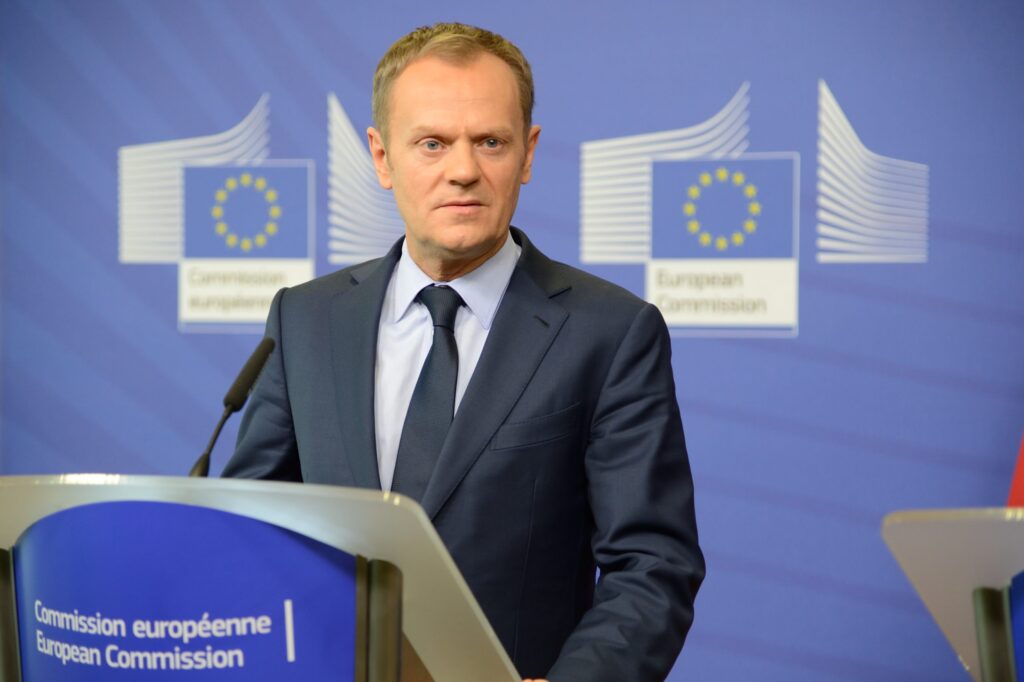Strengthening EU Cybersecurity a Key Priority
Poland is set to push for a major cybersecurity initiative during its chairmanship of EU meetings in the first half of this year. At an informal gathering of telecom ministers in Warsaw on March 4-5, Poland will request EU member states to sign a cybersecurity declaration, according to sources within the EU institutions. The declaration aims to enhance preparedness for cyber incidents and strengthen cooperation among member states.

(Prime Minister of Poland Donald Tusk as European Council President) source: v3.sofiaglobe.com
The upcoming meeting is expected to focus entirely on cybersecurity, addressing key topics such as responses to large-scale cyber incidents, bolstering civil-military collaboration in cyberspace, and increasing investments in cybersecurity infrastructure. The initiative aligns with Poland’s broader goal of fortifying digital defenses across the European Union.
Subsea Infrastructure and Cybersecurity Measures
The push for a cybersecurity declaration coincides with the European Commission’s recent action plan to protect submarine telecom infrastructure. Following recent incidents in the Baltic Sea, the Commission has outlined a strategy to enhance the security and resilience of undersea cables, which are critical to Europe’s communications network.
By the end of the year, the EU executive plans to introduce several measures, including mapping existing and planned submarine cable infrastructures, conducting a Coordinated Risk Assessment, and developing a Cable Security Toolbox. These efforts aim to mitigate risks and identify priority projects crucial to European security.
A letter from the Dutch government to its parliament earlier this month hinted at the Warsaw declaration’s importance. Dutch Economy Minister Dirk Beljaarts emphasized the need for “future-proof policies” to keep pace with the rapidly evolving regulatory landscape.
Urgent Need for Implementation of Cybersecurity Rules
Despite the EU’s cybersecurity efforts, 20 out of the 27 member states have yet to implement national legislation enforcing cyber regulations for critical entities. The Network and Information Security Directive 2 (NIS2), approved in 2022, was designed to protect essential sectors such as energy, transport, banking, and digital infrastructure from cyber threats. However, many countries remain behind schedule in adopting these measures.
During a recent European Parliament debate in Strasbourg, the Commission urged member states to fast-track the implementation of NIS2 to enhance the EU’s resilience against hybrid threats, including recent attacks on undersea cables. As Poland takes a leadership role in cybersecurity discussions, the upcoming Warsaw meeting may serve as a crucial step toward a more secure digital Europe.


